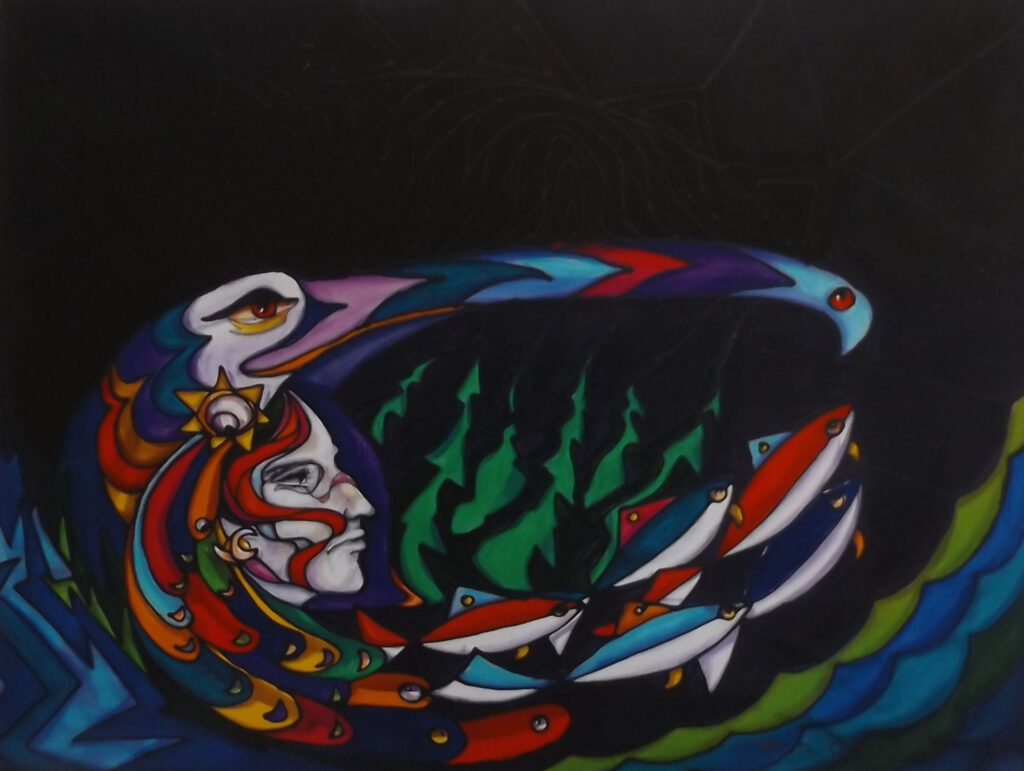
U of C commemorates National Day for Truth and Reconciliation
By Shefali Rai, September 30 2021ㅡ
Sept. 30, 2021 marked Canada’s response to the 80th Call to Action identified in the Truth and Reconciliation Commission of Canada: Calls to Action. The University of Calgary community joined this effort by participating in Orange Shirt Day — the first-ever National Day for Truth and Reconciliation.
Orange Shirt Day originated from the story of Phyllis (Jack) Webstad, a six-year-old who was stripped of her brand-new back to school orange t-shirt on her first day at a residential school in 1973. This day invites us to honour, reflect and acknowledge the journey of the survivors and the tragic history and legacy of residential schools.
Embarking on the events this week, U of C’s Office of Indigenous Engagement alongside the Calgary Public Library presented the Indigenous Writers Panel: Literature on Intergenerational Trauma and Healing webinar that candidly explored the topics of intergenerational trauma and Indigenous resilience. Dr. Michael Hart, vice-provost of Indigenous Engagement, hosted a panel of acclaimed novelists Lee Maracle, Richard Van Camp and Eden Robinson.
Lee Maracle, a Stó:lō nation novelist and poet, commenced the discussion with an excerpt from her book Daughters are Forever.
In her response to the role Indigenous literature plays in truth telling, Maracle described the divide between Indigenous and non-Indigenous people.
“We can’t see each other because we don’t interact with each other,” said Maracle. “We don’t see our insides and our outsides in communion with each other — we are separated.”
When Maracle began her discovery of truth seeking and storytelling, she realized how Indigenous people became transformed, and that the current struggle, “is to get everybody to know that the land requires the cultures of Indigenous people to shine.”
Adding to this sentiment, Richard Van Camp, a Tłı̨chǫ Dene author of 26 books, acknowledged Maracle and her work.
“Lee, you gave me my wings as a writer,” said Van Camp. “You shared with me that the beauty of fiction [is that] you can mend what is broken in your life and find what’s been stolen in your life. You can resurrect the dead with your writing. Those words changed my life.”
Van Camp wore an orange shirt to honour his mother and uncles who are residential school survivors.
“I wear this beautiful orange shirt today for everyone who was abducted, for those who didn’t make it home, and as an admiration for survivors and their families,” he said.
Van Camp demonstrated the vulnerability he felt when writing When We Play Our Drums, They Sing! by reading a passage from his book.
Following Van Camp was Eden Robinson, writer from the Haisla and Heiltsuk First Nations and author of the renowned Monkey Beach.
“When I was writing Monkey Beach, it was a journey for me and one that I took very consciously. Every single generation of my family before me went to residential schools. Some people were going through profound healing journeys,” said Robinson.
She further elucidated her responsibilities as a writer, tying in Maracle and Van Camp’s traditional ways of storytelling.
“When you watch Richard prepare for a reading […] he does a lot of work to make that look effortless,” said Robinson. “That to me is what a traditional storyteller does. When you listen to Lee, she’s sat at the elders’ feet — to me that is a culture keeper.”
Robinson clarified her role as a writer by adding, “What I am is a witness. Like you and everyone in the audience, you are bearing witness. It’s not an easy role especially when the stories are hard [to hear].”
Hart then transitioned from the panel discussion to an open conversation about reflection and reconciliation.
“We can’t lose our hearts by shutting them down,” said Hart. “I work in a system that reflects that of shutting things down and focusing on the mind. It works for the post-secondary system, but that’s not the way of our people.”
Hart questioned the panelists on advice for emerging Indigenous writers and how our entire community can stand together in reconciliation.
“Write for revenge,” said Van Camp. “We haven’t really talked about reconciliation during this panel. When our allies show up, stand up, and speak up and do the good work to help [Indigenous people] return to our whole selves, that’s witnessing and that’s being an ally.”
Maracle echoed Van Camp and stated, “We want to see each other in a way that’s truthful but without disrupting the journey of that person. We are only here to help people on their own journey, not make them take ours.”
U of C President Ed McCauley mentioned the ongoing solidarity that Indigenous communities need from all of us as individuals and from the institution during his closing remarks.
McCauley reflected on Maracle’s words and said, “Lee, your words struck home for me, when you said you are helping show us the way home. The work must go on.”
The University of Calgary is hosting several community events to commemorate Orange Shirt Day this week. Check out more details on all the other events online and to watch a screening of the film adaptation of Monkey Beach. To find more resources on being an ongoing ally, check out Settlers Take Action here.
